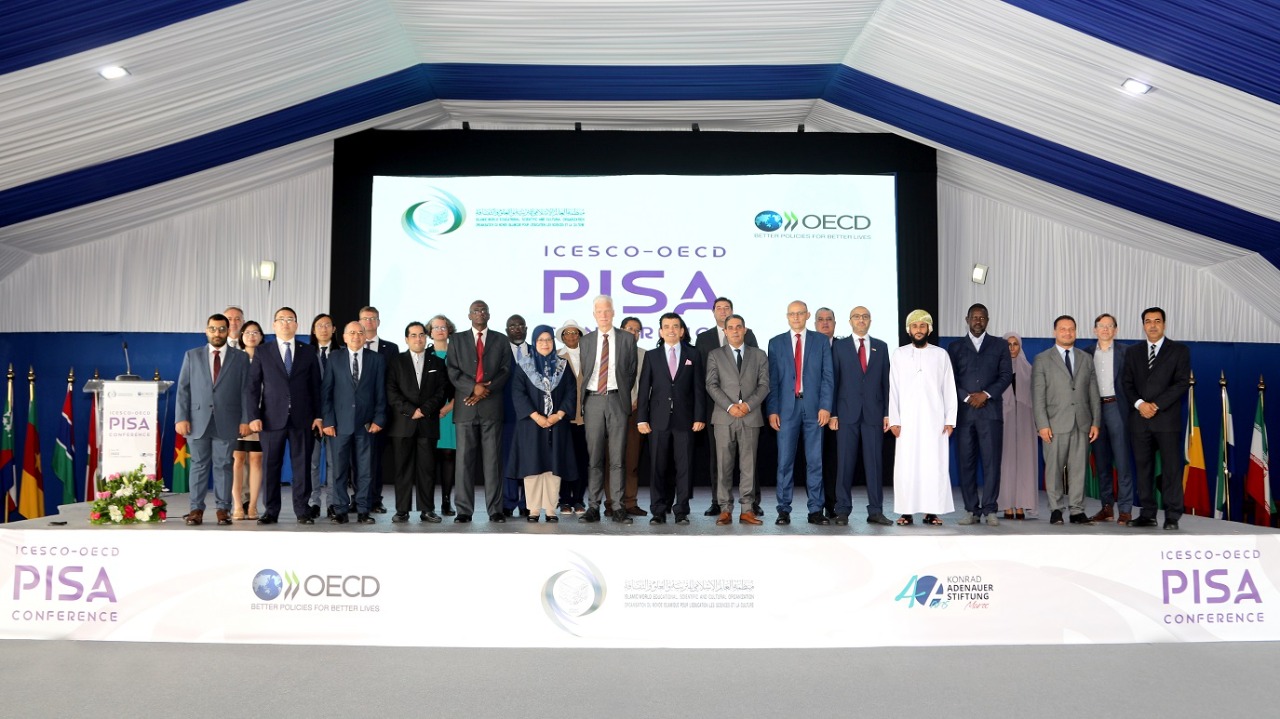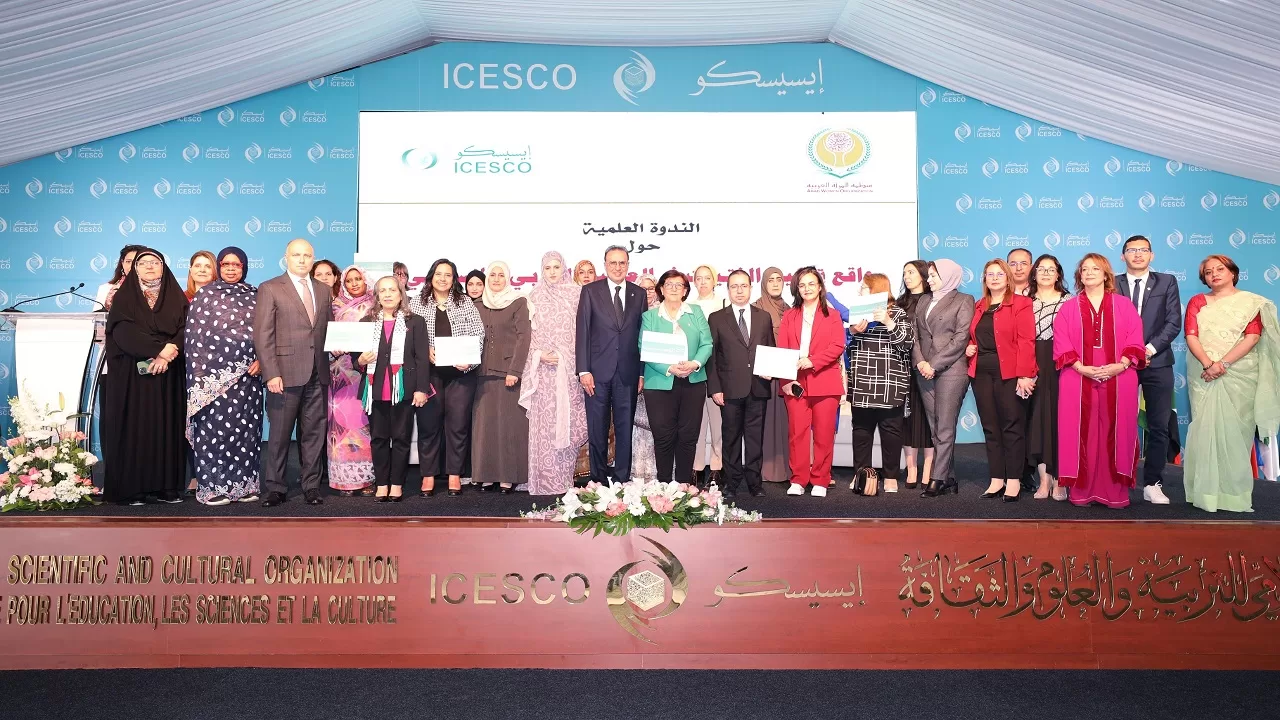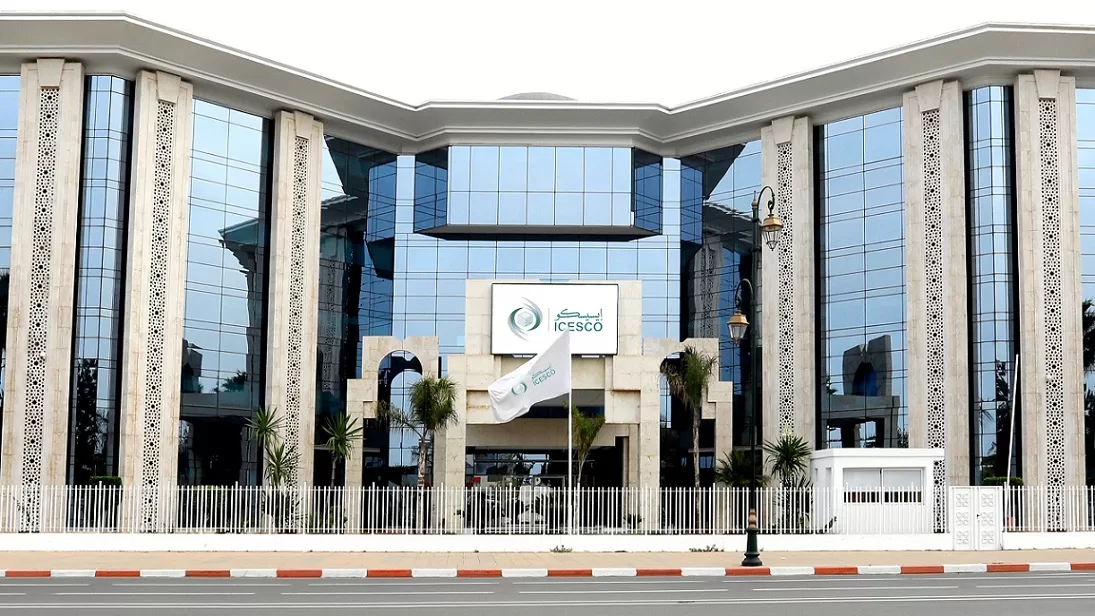
ICESCO and OECD Organize Conference on Program for International Student Assessment

10 November 2022
The Islamic World Educational, Scientific and Cultural Organization (ICESCO), in partnership with the Organization for Economic Cooperation and Development (OECD), held an international conference on the Program for International Student Assessment (PISA), at ICESCO Headquarters in Rabat, in the presence several representatives and officials of the education ministries in several Member States.

During his opening address, on Tuesday, November 9, 2022, Dr. Salim M. AlMalik, ICESCO Director-General, stressed the importance of redoubling and unifying efforts to achieve the common aspiration for the fourth goal of the Sustainable Development Goals, which aims to ensure inclusive and equitable quality education and promote lifelong learning opportunities for all.

Dr. AlMalik explained that ICESCO and OECD seek to establish distinguished educational systems to create healthy competition among Member States to enhance the quality of educational standards and ensure their efficiency.
He pointed out the importance of the availability of accurate data for countries, as it represents an essential tool for developing effective policies in the field of education, highlighting the importance of the PISA program in evaluating the education systems of the participating countries and raising awareness among students about the need for basic knowledge and skills that would enable them to fully participate in social and economic life.

For his part, Andreas Schleicher, Director of OECD Education and Skills, reviewed the Organization’s efforts to promote the quality of education through the PISA assessment, which relies on a set of accurate and comprehensive criteria for the elements of the educational process to study and analyze all challenges that hinder the progress of some countries in achieving quality in education.

The high-level session of the conference on enhancing the results of learners in the ICESCO Member States witnessed distinguished addresses on contribution mechanisms that evaluate “PISA” to keep pace with global requirements and develop education policies in the Islamic world. Dr. Hassan Al-Muhairi, the representative of the United Arab Emirates, stressed the importance of exchanging experiences in the field of education at the local and global levels to enhance the curricula. Mr. Ahmed Al Shuaibi, the representative of the Kingdom of Morocco, reviewed Morocco’s experience in raising the level of education quality assessment to keep pace with modern technological developments. Mr. Amour El-Tayeb, the representative of the Republic of Tunisia, explained the relationship between the process of assessing learners and its connection to real-life skills.

Dr. Fahd bin Abdullah Al-Suhaimi, the representative of the Kingdom of Saudi Arabia, reviewed the Kingdom’s experience in strengthening the assessment process by developing an external body that follows up on the performance of educational institutions to help them meet their requirements and qualify teachers’ capabilities. Dr. Wan Risuha Bint Ali, the representative of the State of Malaysia, identified the challenges facing education in her country, mainly the gap between students and the solutions to address it. For his part, Mr. Massar Diop, the representative of the State of Senegal, explained that the educational systems must rely on a proactive vision to meet the challenges of the future and to benefit from the experiences of countries where the means of education have been developed.

The conference included two discussion sessions; the first focused on the development of the PISA system into a global mechanism that meets the needs of the twenty-first century, while the second session touched upon empowering educational institutions and teachers through PISA assessment.




